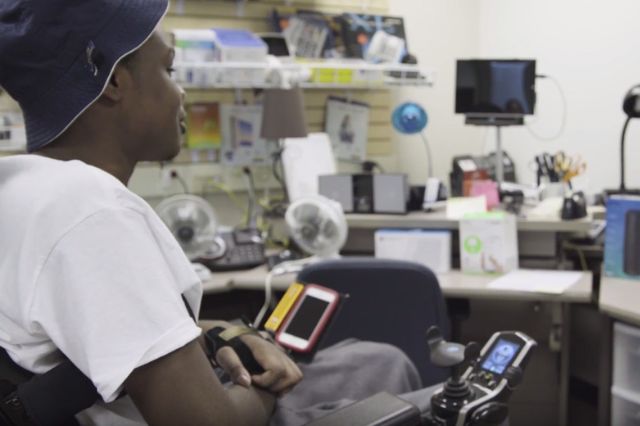Understanding MS Flare-Ups and Relapses
Most ms flare-ups and relapses can be managed effectively with rehabilitation, medication, and other therapies
Medically Reviewed by Ben W. Thrower, M.D.
Most forms of MS involve stretches of time when you feel good and other times when your symptoms act up. These flare-ups may be referred to as attacks, relapses, flare-ups, episodes, or exacerbations.
This happens when the immune system mistakenly targets the protective covering of nerve fibers in the central nervous system. During an MS flare-up, inflammation and damage to the nerve fibers result in a variety of symptoms that differ from person to person. These can include increased fatigue and weakness, numbness or tingling in the limbs, coordination and balance problems, difficulty with speech or swallowing, blurred or double vision, muscle stiffness or spasms, and cognitive difficulties.
The frequency and duration of MS flare-ups also vary. Some individuals may have brief flare-ups that resolve within weeks, whereas others may have persistent or frequent flare-ups lasting from a few days to several months. It is crucial for individuals with MS to consult their healthcare team to manage and minimize the impact of flare-ups. Treatments may include medications to reduce inflammation, physical therapy for mobility issues, and lifestyle modifications to support overall health and well-being.
Triggers and Causes of MS Flare-Ups
The exact cause of MS flare-ups remains unclear. However, several factors contribute to their occurrence. Risk factors such as age, gender, family history of MS, and certain genetic factors can contribute to MS flare-ups. Lifestyle factors like smoking, lack of exercise, and poor diet may also increase the likelihood of flare-ups.
Environmental triggers can also contribute to MS flare-ups. Changes in temperature, particularly extreme heat or cold, can increase symptoms. Exposure to certain infections, such as the flu or urinary tract infections, can also trigger a flare-up. Stress, both emotional and physical, can contribute to flare-ups as it may disrupt the immune system, leading to increased inflammation and symptom onset. Managing stress through relaxation techniques, exercise, and seeking support from loved ones can help minimize stress's impact on MS.
MS Flare-Up Symptoms
Varying from mild to severe, MS flare-ups may cause new symptoms and/or the exacerbation of existing symptoms. Some flare-ups produce only one symptom related to inflammation in a single area of the central nervous system. Other flare-ups cause two or more symptoms simultaneously related to inflammation in more than one area of the central nervous system. To be a true exacerbation, the attack must last at least 24 hours and be separated from the previous attack by at least 30 days.
Common symptoms of MS flare-ups include:
- Fatigue
- Dizziness
- Balance and coordination problems
- Vision trouble
- Bladder issues
- Numb or tingling feelings (pins and needles)
- Memory problems
- Trouble concentrating
Preventing and Managing MS Flare-Ups
Managing and preventing MS flare-ups is essential, and various strategies exist to reduce their frequency and severity. A comprehensive treatment plan for managing and preventing MS flare-ups may include various components such as:
- Disease-Modifying Therapies (DMTs)
- Corticosteroids to reduce nerve inflammation
- Plasma exchange (plasmapheresis)
- Infusion treatments
- Oral and injectable treatments
- Muscle relaxants
- Physical, occupational, and/or speech therapy
- Health and wellness strategies
It's crucial to consult with your healthcare provider before making any changes to your medication, lifestyle, or exercise routine. They can provide personalized advice and develop a comprehensive plan tailored to your needs to effectively manage and prevent MS flare-ups.
Where should I go for MS flare-up management?
At The MS Institute at Shepherd Center, we understand the unique challenges posed by MS flare-ups. Our specialized care is designed to provide comprehensive treatment plans addressing the specific needs of patients experiencing flare-ups. Our team of experienced healthcare professionals is committed to providing high-quality care. We develop personalized treatment plans tailored to individual symptoms and goals.
Our comprehensive treatment plans include medication management, physical therapy, occupational therapy, and counseling services, addressing both the physical and emotional aspects of flare-ups. We believe in collaborating with other healthcare professionals, including neurologists, primary care physicians, and specialists, to ensure patients receive comprehensive and coordinated care.
The Andrew C. Carlos Multiple Sclerosis Institute at Shepherd Center
Contact Us
Our Address
2020 Peachtree Road NW
Atlanta, GA 30309-1465
Clinic, Rehabilitation, and Wellness Hours
Monday to Friday
8:00 a.m. – 4:00 p.m. ET




